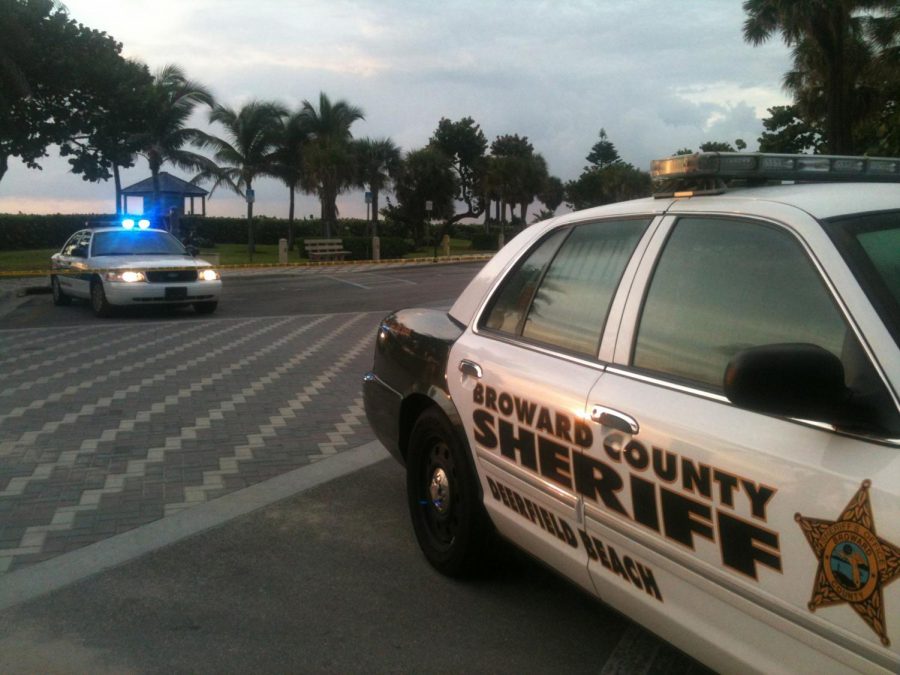“I know he’s going to explode…into a school and just shooting the place up.” This was the tip received by the FBI just 40 days before the Parkland massacre from a woman who knew the culprit and his family. One would deem this tip alone to be alarming enough to elicit immediate action. Yet on February 14th, the shooter, armed with an AR-15, walked unobstructed into Florida’s Marjory Stoneman Douglas High School and murdered 17 innocent civilians. To make matters worse, the myriad of warnings that law enforcement received regarding the Parkland shooter were anything but subtle.
The Broward County Sheriff’s Office received at least 45 phone calls regarding the shooter, many explicitly warning that he was capable of violence. On November 28th, Rocxanne Deschamps—a family friend—told the Sheriff’s Office that the perpetrator was obsessed with guns and that she was afraid he would inflict harm upon her son. “It’s not the first time he’s put a gun on somebody’s head. He did it to his mother too.” Indeed, the shooter’s mother had called the police to her home on numerous occasions during the last six years due to her son’s abusive behavior, which included hitting her with a vacuum cleaner hose and throwing her against the wall for taking away his Xbox. The shooter had been expelled from Marjory Stoneman Douglas, where he was known to have displayed violent and erratic behaviors such as throwing a chair at his teacher. Moreover, a neighbor had reported to the Broward County Sheriff’s Office that the perpetrator had recently expressed his intent to “shoot up a school” on Instagram. The FBI had also received a tip about a suspicious YouTube comment in which he proclaimed his desire to become a “professional school shooter.” Numerous other complaints made to the local authorities described the culprit’s distressing behavior including shooting a neighbor’s chicken with a BB gun, collecting hate symbols, cutting himself and swallowing gasoline in a failed suicide attempt. If these are not enough red flags for law enforcement to intervene, I don’t know what is. Granted, the police cannot exactly arrest someone for what they’re thinking. Except they can!
The Baker Act under the Florida State Statute enables law enforcement to temporarily detain individuals, have them medically examined and provide emergency health services if they are mentally ill and are reported by family and friends to pose a threat to themselves and others. In the case of the Parkland shooter, there was plenty of evidence to corroborate this assertion. In 2016, worried school officials at Marjory Stoneman Douglas alerted a mobile crisis unit after the culprit sent out a Snapchat video of him cutting his arms and declaring his intention to “go out and buy a gun.” His mother informed investigators that her son suffered from ADHD, depression and autism. On January 5, the FBI received an explicit tip regarding the shooter stating, “He’s got the mental capacity of a 12 to 14-year-old…I just want someone to know about this so that they can look into it. I’ll know I have a clear conscience if he takes off and starts shooting places up.” The caller also detailed the shooter’s activity on Instagram where he posted pictures of guns and dead animals. What’s most shocking in all of this is that the shooter himself called 911 around Thanksgiving after he got into an altercation, saying that he was struggling with the death of his mother. “The thing is I lost my mother a couple of weeks ago, so like I am dealing with a bunch of things right now.” Had the Broward County Sherriff’s Office acted then and there, February 14 could have taken a different course.
Moreover, it wasn’t just leading up to the massacre when law enforcement showed negligence. According to CNN, while the murderer roamed the halls opening fire on students, four deputies from the Sheriff’s Department took cover behind the walls and did nothing. For four whole minutes, they waited—four of the five minutes it took the shooter to gun down 17 lives.
After all this, Sheriff Scott Israel has the audacity to claim “amazing leadership” on his behalf. He has the gall to beat his chest before the Parkland survivors. As soon as one holds him accountable, he virtue-signals and diverts the audience by mud-slinging at second-amendment advocates and the NRA. “America. There’s one person responsible for this act. That’s the detestable, violent killer.” Lo and behold, the gullible crowd cheers; the survivors themselves give him standing ovations.
Fast forward to April 3: The Mountain View Police receive a call from a man who reports his daughter missing and warns that she might be headed to YouTube because she “hated them.” The police find her sleeping in her car outside Walmart, question her and let her go. Ten hours later, she opens fire at YouTube Headquarters in San Francisco. Did we learn nothing from Parkland?
Granted, there is a lot that needs to be done regarding gun violence in this country. However, holding law enforcement agencies accountable is fundamental, regardless of the nature of the crime. We must not let those responsible for protecting us slip into the shadows amidst the ongoing turmoil.
Bhavya Pant is a Collegian columnist and can be reached at [email protected].





















NITZAKHON • Apr 17, 2018 at 9:05 am
Many good points. One, specifically, that you didn’t mention: the federal incentives to NOT report incidents to keep kids out of jail. Could the shooter – I refuse to name him – have been saved? Possibly. But by not creating a criminal record with “good intentions” (and federal $ as an incentive) the background checks failed.
As gun ownership in this country has risen, violent crime has fallen. Go do some research about the crime rates in, say, the 1970s.
Also, I refer you to the book ARMED by Kates and Kleck, as just one example.
https://amzn.to/2tJwLtn
And my own opposition to gun control:
http://redpilljew.blogspot.com/2018/02/a-very-personal-opposition-to-gun.html